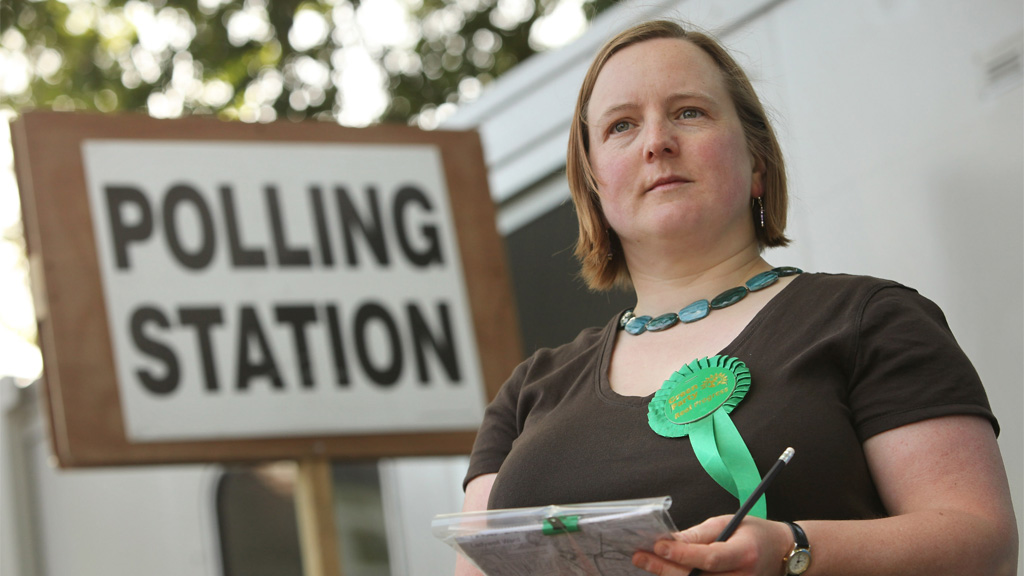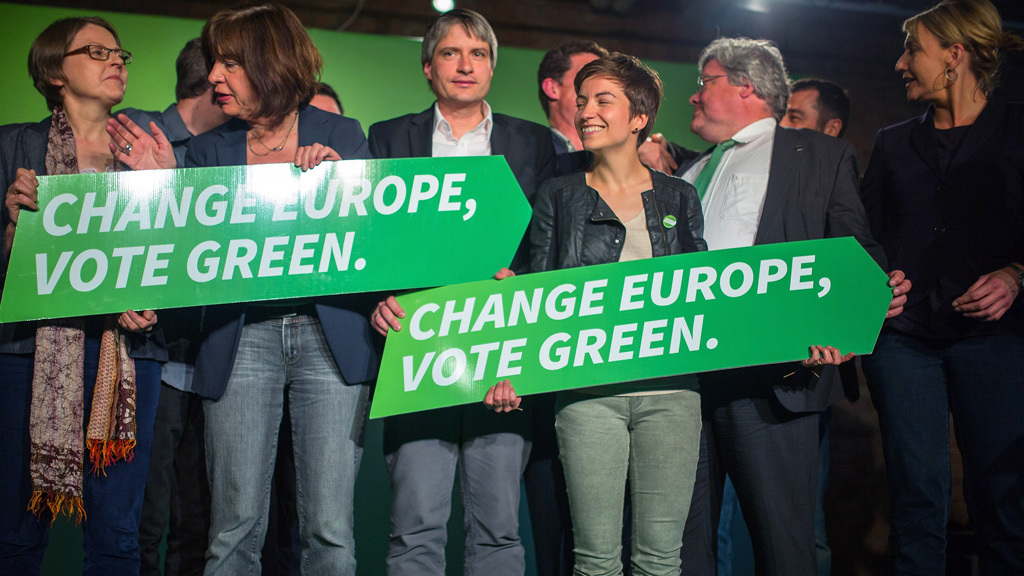Can the Greens keep their principles and wield power?
Britain’s Greens want to present themselves as a radical alternative in the local and European elections, but in Ireland and Germany, Green party commitments to core principles appear to be lacking.

In 2007 Ireland‘s Green party found itself in a coalition government propping up the centre-right Fianna Fail, a party the electorate would later blame for the country’s economic collapse.
Green MP Eamon Ryan was appointed minister for energy and natural resources, after spending a number of years campaigning against a controversial Shell onshore refinery in the west of Ireland.
Many environmentalists and opponents of Shell’s plan believed Ryan would renegotiate or reverse the planned pipeline, which would pass under local homes and had seen a major police operation mounted to tackle local protests.
Before entering government, the Green party had even adopted a resolution that they would not sign off Shell’s project until a “full independent review” was conducted.
There were no changes in government policy on the issue, and Eamon Ryan ultimately oversaw the project in his role as minister. A number of party members resigned in 2010 and the party was wiped out in the 2011 elections with just 1.8 per cent of the vote.
British Green Penny Kemp told Channel 4 News: “As part of a European movement, we cannot be held responsible for our sister party actions. The GP of England and Wales did not agree with the position adopted by the Irish Greens.”

European heritage
While Germany‘s Greens were not the first green party to make an electoral breakthrough in Europe, they provided an ideological leadership to the movement from its early days.
One of their four fundamental principles was non-violence. This changed in 1999 when the party backed the Nato bombing of Belgrade, with party member Joschka Fischer holding position of foreign minister at the time.
In 2001, as junior partner in a red and green coalition with the Social Democratic party, the Greens backed the deployment of 3,900 troops for the US “war on terrorism”.
Green foreign minister Fischer even threatened to resign if Green MPs did not vote in support of the military deployment.
The party was rebuked by British Green Penny Kemp, who wrote: “Greens who are propping up the German government have put power before principle. Their claim that they must participate in the war effort in order to make it more humane is obscene.”
From red to green
One of Europe’s most prominent greens is Daniel Cohn-Bendit, the firebrand leader of the French student insurrection in 1968, and now best known as co-president of the European Greens-European Free Alliance in Brussels.
In common with a great number of Greens, Cohn-Bendit had a radical youth, flirting with anarchism and communal living during the late 60s and 70s. His radical journey ended in 1984 when he joined the Green party.
The early Green party was sceptical of the European Union and drives towards economic integration, advocating a decentralised and neutral “alternative Europe”.
By 2003 Cohn-Bendit had become a leading European statesman, having been elected to the European parliament as a German and then a French MEP.
Now a vocal advocate of the European Union project, Cohn-Bendit warned countries who voted against the European constitution they should be forced to vote again, and be expelled if they voted no a second time.

Ideals versus pragmatism
Europe’s Green parties have struggled to balance their radical idealist roots with pragmatism in parliaments. Here in the UK as they gain power locally the Greens have been forced into difficult decisions.
Britain’s Green party manifesto still contains a number of radical policies, and the party has been courted in recent months by a younger generation of radicals.
Among their policies are the introduction of a universal basic income, an overhaul of the banking system, and an end to austerity.
The Greens are currently the largest party on Brighton council, holding 23 seats. But while they campaign with an anti-cuts message, in Brighton they passed a cuts budget that provoked disquiet inside the party.
One activist, Joseph Healy, wrote a resignation letter after the party voted to support the Brighton councillors’ decision.
He asked; “How can the Greens seriously challenge the corporate sector, the global corporations, climate change in the Arctic and the prospect of resource wars and famines, if they fall down at the first puff of wind from Eric Pickles and the Department for Communities and Local Government?”
British Green Penny Kemp told Channel 4 News: “In Brighton and Hove the Greens run a minority administration and are often out-voted by the Labour and Tory groups.
“In fact, I would go as far to say that the Labour group dislike the Greens so much that they abandon any pretence of wishing to protect the most vulnerable in the city by joining with the Tories to outvote the Greens, as witnessed recently by the debate on a council tax increase of 4.75 per cent, when Greens were outvoted unanimously by Labour/Tories. “